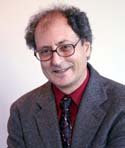As the financial crisis has unfolded over the past few weeks, many high profile leaders have had their faith in a market driven economy shaken. Even Alan Greenspan had to admit in testimony before Congress that the assumptions behind his economic policies were wrong. He now says he made a mistake in believing that banks “operating in their own self-interest, would do what was necessary to protect their shareholders and institutions.”
Actually, I think markets work well when the conditions for them are allowed to exist. But we are seeing the unmasking of one of the greatest economic deceptions of all time—the claim that in the United States a market determined home prices. The “invisible hand” that Adam Smith envisioned setting prices in a marketplace is suppose to be just that—invisible. Smith’s economic model rested on the assumption that many buyers and sellers acting in their own self-interest and without government interference would negotiate fair prices for scare commodities.
But lets count the ways the so-called “housing market” has failed to meet these conditions.
Government subsidies for homeowners – For decades the federal government has taxed homeowners at a lower rate than renters. It accomplishes this by allowing payments for home mortgage interest to be deducted from income. Homeowners can borrow up to the entire equity in their house and spend the money on whatever they want—cars, vacations, college tuitions—and the interest paid on the loan is tax deductible. Renters are not allowed to deduct interest paid on loans. The effect of this policy is that homeowners are taxed less as long as they remain in debt. That makes owning a home intrinsically more valuable than just having a place to live.
Government-backed loans eliminate lenders’ risks-The point of Freddie Mac and Fannie Mae was to encourage banks to loan private money to purchase homes by promising public money if the loan went bad. This policy effectively privatized gains and socialized losses. The result is a moral hazard that subverts the functioning of the market. Banks can loan money under the most outlandish of circumstances because they have everything to gain and nothing to lose.
A single person sets interest rates – The Federal Reserve Chief dictates interest rates. It’s no accident that Alan Greenspan had the nickname “Maestro” when he ran the Federal Reserve. Rather than allow market processes to determine interest rates he orchestrated market movements by dictating the rates himself. Allowing the judgment of one person to determine something as fundamental as the cost of money on such a grand scale is the antithesis of a free market.
Of course the government had good reasons for these policies. Congress decided that communities benefited from widespread home ownership. In other words a social good resulted if more people owned homes rather than rented. But government manipulation of markets to achieve a social goal is the definition of socialism.
That is where the great fraud arises—the creation of a socialist system for home ownership but labeling it a “free market.” The claim that no regulation is needed for mortgages because the market will operate is absurd. Socialist systems need regulation; otherwise the moral hazards are too great. The government appears to have no plans for ending the mortgage interest deduction, ending bailouts of failed lenders, or ending Federal Reserve control of interest rates. If it continues to use these policies to manipulate home prices its needs to be intellectually honest. The government should admit that fact that the housing market has been socialist for decades and adopt appropriate regulations to protect the public.
Subscribe to:
Post Comments (Atom)




No comments:
Post a Comment